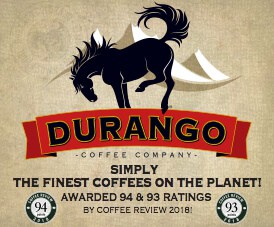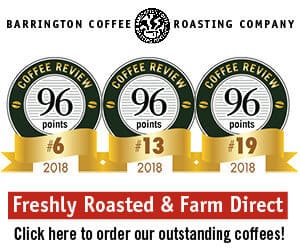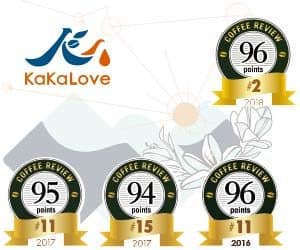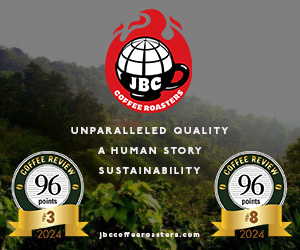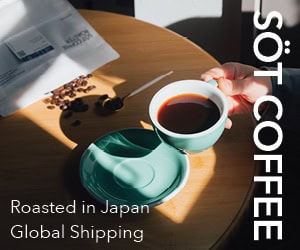Produced by the Nano Genji cooperative in Ethiopia’s Jimma Zone. Ethiopia coffees like this one are produced largely from local, indigenous varieties of Arabica. Processed by the wet or washed method (fruit skin and pulp are removed before drying). JBC Coffee Roasters’ vision is simple: “let the coffee lead the way” through sourcing and roasting the best and most unique coffees available and
SEARCH RESULTS
Dukunde Kawa Rwanda
Produced by the Dukunde Kawa Cooperative entirely from local strains of the admired Bourbon variety of Arabica and processed by the wet, or washed, method. JBC Coffee Roasters’ vision is simple: “let the coffee lead the way” through sourcing and roasting the best and most unique coffees available and rewarding the farmers who grow those coffees with substantial premiums. Visit
Buzira Burundi Natural
Produced by smallholding farmers from the Batian, Bourbon, Jackson, K7, Mbirzi 49, Mbirizi 68, and SL28 varieties of Arabica and processed by the natural method (dried in the whole fruit). JBC Coffee Roasters’ vision is simple: “let the coffee lead the way” through sourcing and roasting the best and most unique coffees available and rewarding the farmers who grow those coffees with substantial
Birambo Village DR Congo
Certified organic and fair trade. Produced from the Blue Mountain, Bourbon, Caturra, Catuaí, and Kabare 2 varieties of Arabica and processed by the wet, or washed, method. JBC Coffee Roasters’ vision is simple: “let the coffee lead the way” through sourcing and roasting the best and most unique coffees available and rewarding the farmers who grow those coffees with substantial premiums. Visit
Birambo Village DR Congo Espresso
Certified organic and fair trade. Produced from the Blue Mountain, Bourbon, Caturra, Catuaí, and Kabare 2 varieties of Arabica and processed by the wet, or washed, method. JBC Coffee Roasters’ vision is simple: “let the coffee lead the way” through sourcing and roasting the best and most unique coffees available and rewarding the farmers who grow those coffees with substantial premiums. Visit
Wolde Hirbe Natural Espresso
Coffees like this one from southern Ethiopia are produced from distinctive, largely indigenous Ethiopian varieties of Arabica long grown in the region. Processed by the natural method (dried in the whole fruit). JBC Coffee Roasters’ vision is simple: “let the coffee lead the way” through sourcing and roasting the best and most unique coffees available and rewarding the farmers who grow those
San Sebastian Colombia
Produced by small-holding farmers with the support of Caravela Coffee, an innovating exporter-importer working in eight Latin-American countries. Processed by the wet or washed method (fruit skin and pulp are removed before drying). JBC Coffee Roasters’ vision is simple: “let the coffee lead the way” through sourcing and roasting the best and most unique coffees available and rewarding the farmers
La Coipa Peru
Produced by Eulogia Carrillo Julca on her 7.5-acre farm located near the community of San Ignacio in the admired Cajamarca region of Peru. Meticulously processed by the wet or washed method (fruit skin and pulp are removed before drying). JBC Coffee Roasters’ vision is simple: “let the coffee lead the way” through sourcing and roasting the best and most unique coffees available and rewarding the
Halo Hartume Espresso
Southern Ethiopia coffees like this one are produced from traditional Ethiopian varieties of Arabica long grown in the region. This lot was processed by the wet or washed method (fruit skin and pulp are removed before drying). JBC Coffee Roasters’ vision is simple: “let the coffee lead the way” through sourcing and roasting the best and most unique coffees available and rewarding the farmers who
An In-Depth Look at the Top 30 Coffees of 2019
Coffee Review’s list of the Top 30 Coffees of 2019 represents our seventh annual ranking of the most exciting coffees we tested over the course of the year. This annual effort supports our mission of helping consumers identify and purchase superior quality coffees and, in the process, helping drive demand and increase prices to reward farmers and roasters who invest time, passion and capital in
Refisa Ethiopia
Certified organic. Southern Ethiopia coffees like this one are produced from traditional Ethiopian varieties of Arabica long grown in the region. Processed by the wet or washed method (fruit skin and pulp are removed before drying). JBC Coffee Roasters’ vision is simple: “let the coffee lead the way” through sourcing and roasting the best and most unique coffees available and rewarding the farmers
La Lindura Colombia
Certified organic. Produced at Finca La Lindura from the Bourbon, Caturra and Tabi varieties of Arabica and processed by the wet, or washed, method. JBC Coffee Roasters’ vision is simple: “let the coffee lead the way” through sourcing and roasting the best and most unique coffees available and rewarding the farmers who grow those coffees with substantial premiums. Visit www.jbccoffeeroasters.com
Best Value Coffees of 2019
Some readers seek coffees with highest scores regardless of price. Others look for great value, that is highly rated coffees that are also affordable relative to other similar quality coffees. The coffees and espressos below were singled out on our 2019 list of Top Coffees by Category as the best values in 2019. Best Values – Non-espressos No. 6 - Dragonfly Coffee Roasters, Kenya
Top Coffees by Category – 2019
In 2015, we began the practice of recognizing top coffees by category to focus attention on fine coffees that may not have earned a place on our Top 30 Coffees list. The coffees below may not have attracted the highest scores of the year but they merit recognition for their excellence nonetheless. For more information, visit our expanded rankings post from 2015. We are pleased to recognize
Harimau Tiger Sumatra
This exceptional coffee was selected as the No. 7 coffee on Coffee Review’s list of the Top 30 Coffees of 2019. Mandheling is a term variously used to describe a growing region surrounding Lake Toba in North Sumatra Province and a traditional type of wet-hulled coffee associated with that region. JBC Coffee Roasters’ vision is simple: “let the coffee lead the way” through sourcing and roasting the
Gachami Kenya
Produced from trees of the admired SL-28 and SL-34 varieties of Arabica. Despite grower discontent, contested government coffee policy and urban encroachment on prime coffee lands, the famed Kenya coffee auction system and its participating cooperatives continue to produce some of the world’s most elegant and distinctive coffees. JBC Coffee Roasters’ vision is simple: “let the coffee lead the way”
Twisted V.5
Comprised of coffees from South America, Central America and Africa. Twisted’s name was inspired by the way espresso “twists” as it streams from the spout of a portafilter. JBC Coffee Roasters’ vision is simple: “let the coffee lead the way” through sourcing and roasting the best and most unique coffees available and rewarding the farmers who grow those coffees with substantial premiums. Visit
Finca Santa Isabel Guatemala
Produced by Luis Valdez of the Caturra and Catuai varieties of Arabica and processed by the wet or washed method (fruit skin and pulp are removed before drying). JBC Coffee Roasters’ vision is simple: “let the coffee lead the way” through sourcing and roasting the best and most unique coffees available and rewarding the farmers who grow those coffees with substantial premiums. Visit
Gesha Village Lot #85 Natural
Sold as part of a “Dynamic Duo Gesha Village” set that includes a 4-ounce tin of this “natural” Geisha and a 4-ounce tin of a “washed” version of the same coffee that earned 94-points in August 2019. The celebrated Geisha (also spelled Gesha) variety of Arabica first came to the coffee world’s attention growing in Panama. This particular version, however, is the outcome of efforts to commercialize
Kebele Village Espresso
Coffees from the Yirgacheffe region are produced from distinctive, largely indigenous Ethiopian varieties of Arabica long grown in the region. Like most southern Ethiopia coffees, this coffee is produced by villagers on small garden plots interplanted with food and other subsistence crops. Processed by the wet or washed method (fruit skin and pulp are removed before drying). JBC Coffee Roasters’


